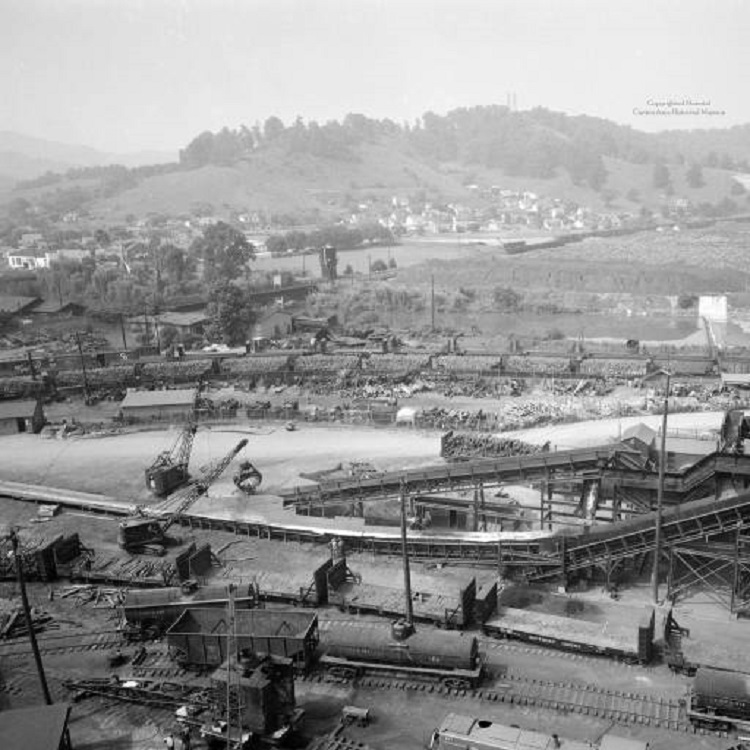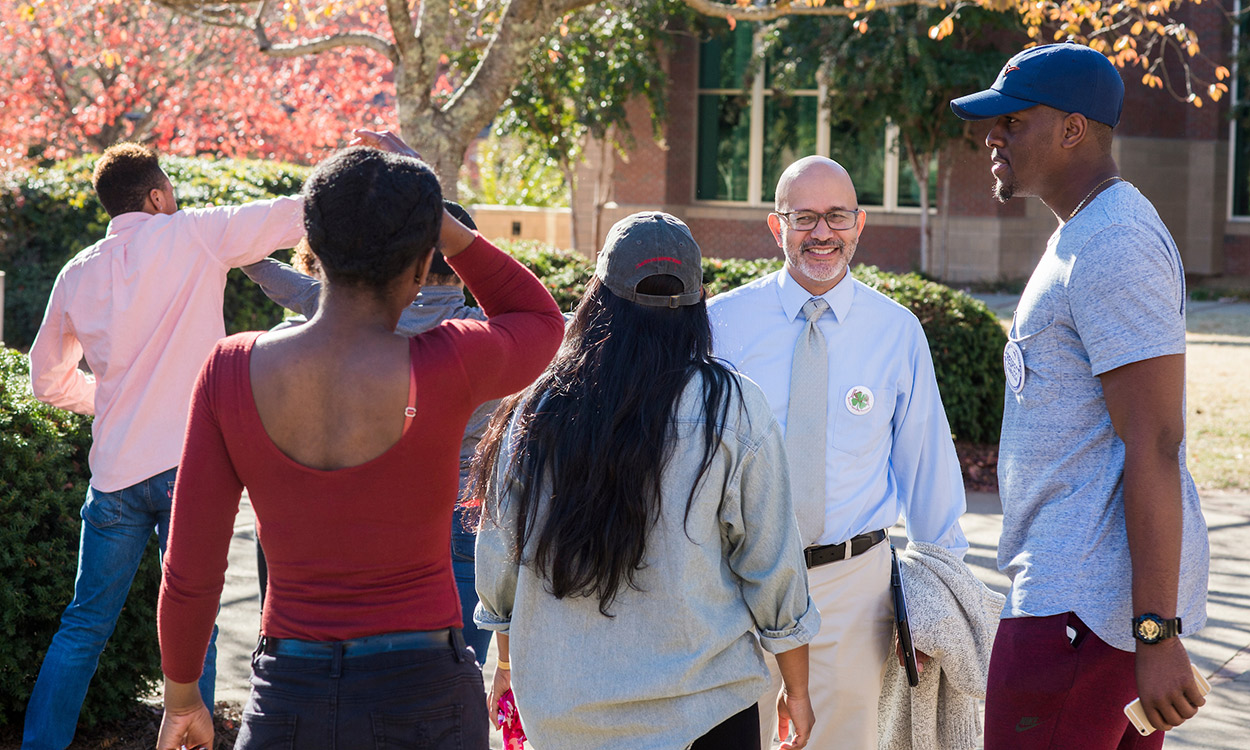Special and Digital Collections helps preserve Canton, Champion history
A recent collaboration of Western Carolina University and the Canton Area Historical Museum preserves aspects of an important era of Haywood County and Western North Carolina, and gives the public an easy access to peek into the past.
A project by WCU’s Special and Digital Collections included borrowing more than 1,600 photo negatives from the museum’s holdings and digitizing them to create positive photo images, each documented with unique information and uploaded to the university’s online archives. The photo compilation is divided into easy-to-search categories, such as camping and camps, organizations, downtown, forestry and conservation, health and wellness, religion, and transportation and travel.

An early aerial view of the Champion Fibre Company mill in Canton.
The focus is centered around Champion Fibre Company, a pulp paper mill that opened in 1908 and became a major employer and community force in the region. The project also involves recorded oral histories of former employees and the digitization of nearly 500 editions of the company newsletter, “The Log.” The completed project contains more than 2,100 items.
“This is a significant collection, and it documents the major impact of the mill on practically every element of life here,” said Liz Skene, WCU special and digital collections librarian. “The population of Canton tripled in size between the start of construction and the opening of the mill. The local economy flourished, and the mill was the driving force for the paving of Canton's streets, the installation of water and sewer lines, and the establishment of public transportation.
“Champion also played a crucial role in the environmental future of Haywood County,” she said. “From 1910 to 1913, the mill provided housing and research for Carl Schenk and the Biltmore Forestry School, at its Sunburst logging camp. In 1920, Champion hired one of the nation’s first professional industrial foresters. Later, Champion was instrumental in the formation of Great Smoky Mountains National Park, selling over 90,000 acres in 1931 to be included within its borders. Lastly, the mill was active in forestry conservation, allocating over 5,000 acres of its land for reforestation.”
Skene said numerous people played an active part in the sometimes-arduous task of putting the digital collection together. Hunter Library employee Jenny McPherson scanned the photo negatives, with museum curator Caroline Ponton and museum volunteer Roland Osborn assisting in locating and identifying photographs. Dr. Bill Roland donated the digital files of “The Log,” which include the first edition in 1914 through 1960.
The oral histories were led by WCU associate professors of history Libby McRae and Alex Macaulay. Conducting the interviews were WCU students Natalye Carter, Alexander Strever, James Taylor, Jordan Baker, Michael Staicar and Kevin Hughes, and as part of a “Mountain People, Mountain Lives” project, by Smoky Mountain High School student Chloe Collins.
The collection can be viewed at digitalcollections.wcu.edu. For more information, contact Hunter Library’s Special and Digital Collections at 828-227-7474 or specialcollections@email.wcu.edu.

